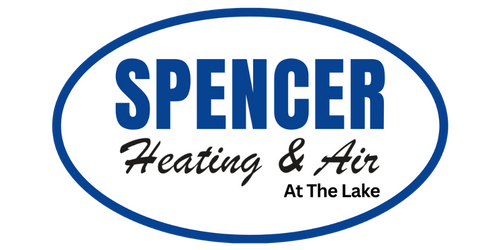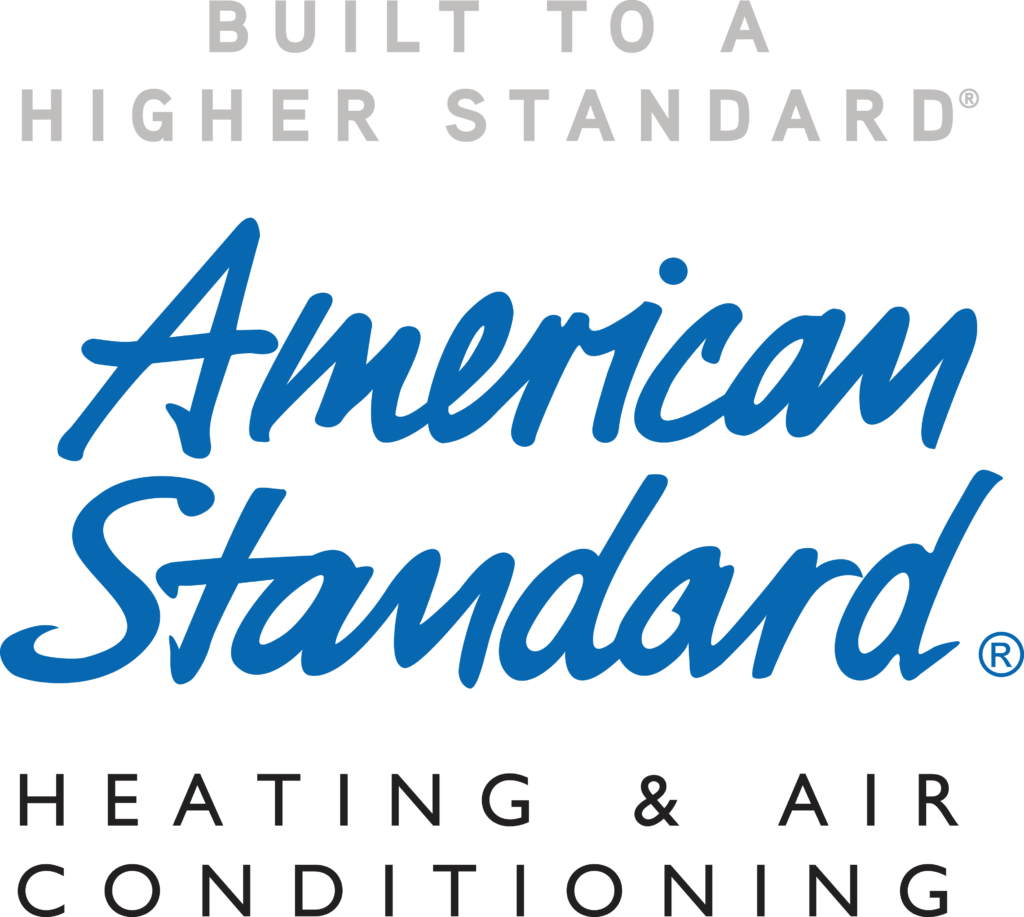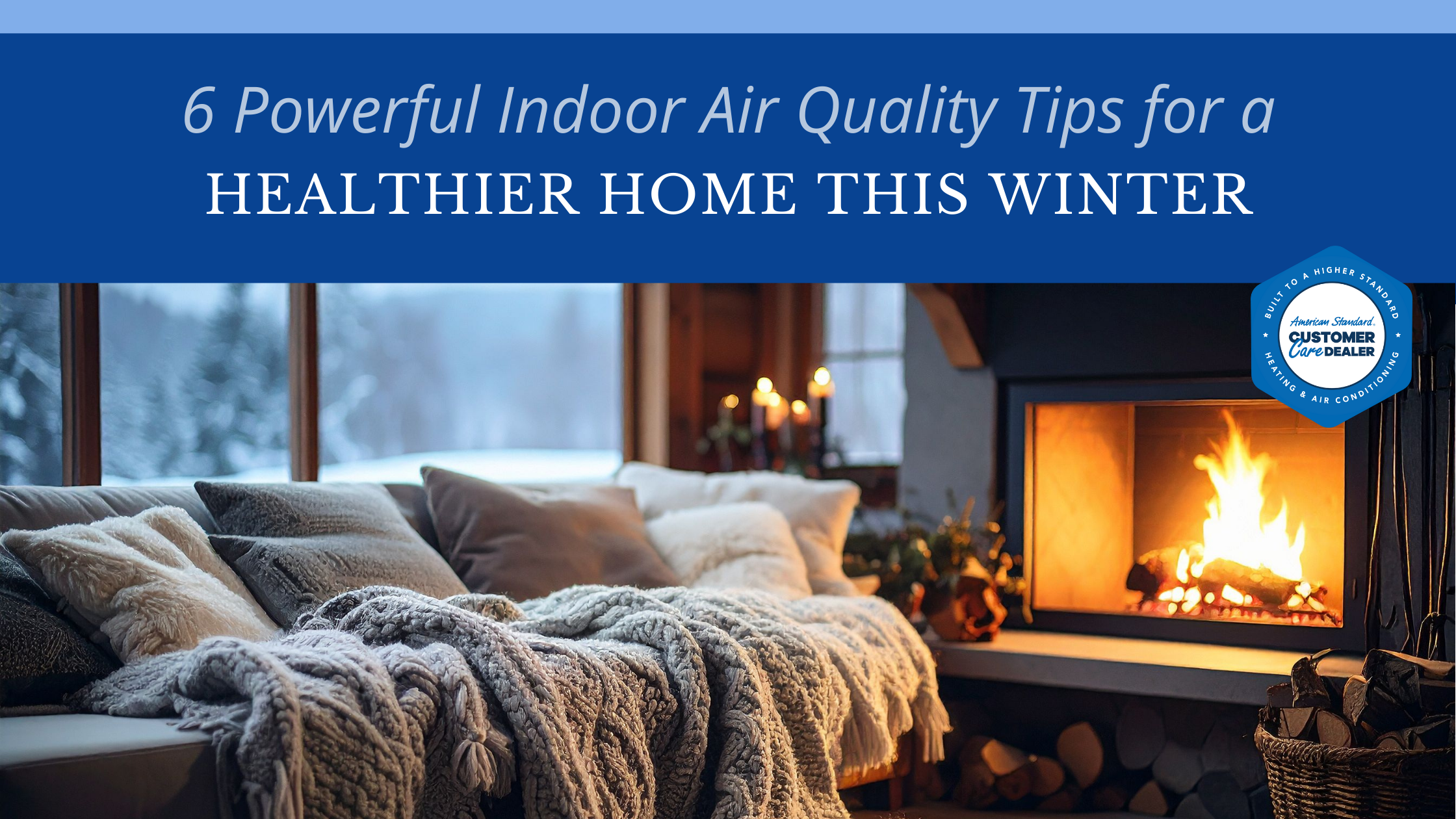6 Powerful Indoor Air Quality Tips for a Healthier Home This Winter
Winter at Lake Martin brings cozy nights, warm gatherings, and crisp seasonal air—but it also brings one challenge many homeowners overlook: poor indoor air quality. When temperatures drop, windows stay closed, homes are sealed tighter, and your HVAC system works overtime.
All of this traps pollutants inside, allowing dust, pet dander, allergens, airborne chemicals, and even viruses to circulate throughout your space.
If you want your family to stay comfortable, healthy, and breathe easier this season, improving your indoor air quality isn’t just a good idea—it’s essential. The good news? With simple, smart changes, you can transform your Lake Martin home into a cleaner, safer, and healthier environment all winter long.
Below are the 6 most powerful indoor air quality tips—easy to follow, voice-search-friendly, and designed specifically for homeowners in Lake Martin, Alexander City, Dadeville, Eclectic, and surrounding communities.
1. Replace HVAC Filters Regularly to Reduce Winter Pollutants
Your HVAC filter is your home’s first line of defense against airborne contaminants, especially during winter when your system runs more frequently. A dirty or clogged filter restricts airflow and recirculates dust, allergens, and pollutants throughout your home.
Why this matters in winter:
Warm air moves through your ducts constantly. The more your system runs, the faster your filter becomes dirty. Many homeowners don’t realize that a neglected filter leads to:
- Poor airflow
- Higher utility bills
- Increased allergens
- Dust buildup
- Extra stress on your HVAC system
What to do:
- Replace your HVAC filter every 30–60 days.
- Choose a high-quality filter (MERV 8–13 depending on your system).
- Have your system inspected if you notice unusual dust, odors, or uneven temperatures.
Tip for Lake Martin homeowners:
If you live near the water, your home may experience more humidity and dust—making routine filter changes even more important.
2. Add Air Purifiers for Cleaner, Healthier Winter Air
While your HVAC filter captures larger particles, air purifiers take indoor air cleaning even further. These devices target microscopic pollutants such as:
- Smoke particles
- Mold spores
- Bacteria
- Viruses
- Chemical odors
- Pet dander
Using air purifiers in winter helps because:
Homes are sealed tight to keep warm air inside, trapping contaminants. Purifiers keep the air fresher and safer by constantly filtering your living spaces.
Where to place air purifiers:
- Bedrooms
- Living rooms
- Home offices
- Areas with pets
- Rooms prone to moisture
For the best results:
Choose a purifier with a true HEPA filter and place it in the area where your family spends the most time.
3. Improve Ventilation to Prevent Stale Air and Odors
Fresh air is harder to bring into your home during winter, but ventilation is essential for removing pollutants and creating healthier airflow. Without good ventilation, airborne contaminants build up quickly—especially in homes with fireplaces, gas appliances, or high moisture levels.
Try these winter-friendly ventilation tips:
- Run bathroom exhaust fans for 15 minutes after showers.
- Use kitchen exhaust fans when cooking.
- Open windows for 5–10 minutes during the warmest part of the day (even in winter).
- Avoid blocking air vents with rugs or furniture.
Consider mechanical ventilation
If your home feels stuffy or damp, or if family members often feel congested, upgrading your HVAC system with a fresh-air ventilation component can dramatically improve air quality.
4. Keep Humidity Levels Balanced to Reduce Allergens and Irritation
Humidity plays a huge role in indoor air quality and winter comfort. Low humidity can cause dry skin, irritated sinuses, and static electricity. High humidity encourages mold and dust mites.
Ideal humidity level:
✔️ 30–50%
During winter:
- Dry air from your heater often lowers humidity too much.
- Without moisture, airborne particles stay suspended longer, making breathing conditions worse.
Solutions:
- Add a whole-home humidifier for balanced moisture.
- Use a hygrometer to monitor humidity.
- Avoid over-humidifying to prevent mold growth.
Balanced humidity not only improves comfort but also helps your heater work more efficiently—saving on winter energy costs.
5. Keep Your Home Clean to Reduce Dust and Allergens
Clean homes naturally have better indoor air quality. But winter cleaning often requires a different approach, because more time is spent indoors—and more pollutants collect in your living spaces.
What to focus on:
✔ Dust Weekly
Use a microfiber cloth to trap dust rather than spreading it around.
✔ Vacuum Twice Weekly
Preferably with a vacuum featuring a HEPA filter.
✔ Wash Bedding in Hot Water
Dust mites thrive in winter. High heat kills them.
✔ Reduce Clutter
Clutter attracts dust and restricts airflow.
✔ Clean Curtains and Upholstery
These items trap dust and odors that circulate through the room.
Bonus tip:
Place washable mats at every entrance to reduce dirt and debris inside your home.
6. Schedule a Winter HVAC Inspection
Nothing impacts the air you breathe more than your heating system. A winter HVAC inspection ensures that your system is:
- Clean
- Efficient
- Safe
- Circulating fresh, filtered air
During a professional inspection, a trained HVAC technician will:
- Check for gas leaks
- Inspect heat exchangers
- Clean coils
- Clear drain lines
- Check blower components
- Ensure proper ventilation
- Test humidity levels
- Make sure your system is not circulating contaminants
Why this matters:
A poorly maintained HVAC system is one of the biggest contributors to poor air quality in winter. Regular maintenance keeps your family healthy, protects your equipment, and ensures your home stays comfortable through the coldest months.
For Lake Martin homeowners:
Winter weather can fluctuate, and your system must be ready for sudden temperature shifts common around the lake.
Commonly Asked Winter Indoor Air Quality Questions
1. Why is indoor air quality worse in the winter?
Winter forces us to keep windows closed, reducing ventilation. More pollutants become trapped inside, and heating systems recirculate the same air throughout the home.
2. What are the most common winter indoor air pollutants?
Dust, pet dander, mold spores, smoke, household chemicals, and viruses are the most common contaminants affecting winter air quality.
3. How do I know if my home has poor indoor air quality?
Signs include increased dust, lingering odors, dry throat, allergies, headaches, coughing, or uneven temperatures.
4. Are portable humidifiers enough?
They work for small areas, but whole-home humidifiers provide better, consistent coverage and help reduce winter dryness more effectively.
5. How often should I replace my HVAC filter in winter?
Every 30–60 days depending on pets, allergies, and system usage.
6. Can indoor plants clean the air in winter?
Plants help remove some pollutants, but they should be used as a supplement—not the primary source of air purification.
7. When should I schedule a winter HVAC inspection?
Ideally in early winter, but anytime you notice poor airflow, uneven temperatures, or unusual odors.
Create a Healthier, Cleaner Winter Home
Improving indoor air quality during winter doesn’t have to be complicated. By making a few smart adjustments—keeping your home clean, balancing humidity, improving ventilation, and maintaining your HVAC system—you can enjoy a healthier, fresher, and more comfortable living space all season long.
Your home should be a place where you breathe easy. With these indoor air quality tips, your Lake Martin home will feel cleaner, safer, and more welcoming for you and your family this winter.
Contact Us
For more than 50 years, our factory-trained HVAC professionals have helped homeowners create cleaner, more comfortable spaces. Just as decluttering keeps your home fresh and functional, maintaining your HVAC system ensures clean air and year-round comfort.
Spencer at the Lake is proud to be a trusted American Standard Heating & Air Conditioning Customer Care Dealer serving the Lake Martin area.
Call Spencer at the Lake at (256) 373-3165
Follow us on Facebook and Instagram for seasonal tips and promotions
Spencer Heating and Air at Lake Martin — your #1 most trusted air conditioning repair company in Lake Martin, Alexander City, Dadeville, Eclectic, and nearby communities.



